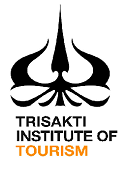Empowering Coastal Communities through Volunteer Tourism: A Pathway to Inclusive Marine Ecotourism in Bali
Abstract
Marine tourism holds immense potential for driving economic development, environmental stewardship, and cultural exchange. However, the rapid growth of coastal destinations often generates imbalances in benefit distribution, environmental degradation, and limited community involvement. This study examines the role of volunteer tourism (voluntourism) in empowering coastal communities in Tulamben, Bali, a world-renowned diving destination. Using a qualitative case study with a phenomenological approach, data were collected through in-depth interviews, participant observation, and document review involving 15 stakeholders representing community groups, NGOs, government officials, tourism operators, and volunteers.
The findings reveal that voluntourism strengthens community participation through grassroots initiatives, capacity building, and conservation programs. Socio-economic outcomes include income diversification and entrepreneurship development, while environmental benefits are evident in coral reef restoration and enhanced community stewardship. Challenges persist, including unequal benefit distribution, limited governance, and reliance on external actors. This paper argues that voluntourism, when integrated into community-based tourism (CBT), serves as a strategic pathway for inclusive and sustainable marine ecotourism.
Keywords: volunteer tourism, community-based tourism, marine ecotourism, community empowerment, Bali









